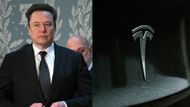Alcon Entertainment, the company that produced Blade Runner 2049, has sued Elon Musk, Tesla, and Warner Bros. Discovery for alleged copyright infringement. The case concerns the alleged unauthorized use of accurate AI recreations of movie scenes when Tesla’s CyberCab, a new self-driving automobile, was introduced on October 10, 2024.
As soon as news of it dropped, the internet could not contain itself and burst into laughter, memes, and jokes on X (formerly Twitter).
"One user commented, “I can't stop laughing. 🤣”
Users shared reactions, with one expressing more appreciation for the movie, another joking about lawsuits, and a third saying their day improved.
“Dare I like that movie more than I already do now,” another user said.
“I love the smell of lawsuit in the morning,” "a user humorously noted.
“Day just got a whole lot better,” read a comment.
Copyright infringement claims

The civil action was filed in a California federal court, which alleges that Tesla relied on AI to produce promotional images that resemble Blade Runner 2049, in direct violation of Alcon Entertainment denying Warner Bros. Discovery permission to do so.
Some images featured a character incredibly similar to Ryan Gosling’s portrayal from the movie, and the background seemingly had the same outlook as the sci-film. According to Alcon Entertainment, it is similar to a pivotal moment where Gosling arrives in deserted Las Vegas via a "quasi-sentient flying car."
The production companies also allege that Tesla engaged in this unauthorized use to make itself more appealing on the market by linking to the Blade Runner franchise. They claim this affected Alcon’s future negotiations for other projects, namely the Blade Runner 2099 series already in development for Amazon Prime Video.
The “financial magnitude of the misappropriation here was substantial," the lawsuit read.
"Any prudent brand considering any Tesla partnership has to take Musk’s massively amplified, highly politicized, capricious and arbitrary behavior, which sometimes veers into hate speech, into account," it further added.
False endorsement and economic theft

Besides a copyright infringement, Alcon is likely also seeking claims under the Lanham Act that focus on a false endorsement. To them, this is deceptive conduct that gives consumers the impression that there is a connection between Blade Runner 2049 and Tesla’s products, even though no such thing exists. Alcon Entertainment refers to it as "massive economic theft," arguing that there are reputational and financial consequences if misuse is given the go-ahead.
Context and implications
Blade Runner 2049 was released in 2017 and is a sequel to Blade Runner movie, which came out in 1982. It was critically acclaimed, receiving two Academy Awards, among other accolades. Its cinematographic work explores themes of artificial intelligence and post-apocalyptic settings, closely connected to Tesla's technological pursuits.
Musk has previously spoken highly of the Blade Runner series and has used its references while talking about Tesla's products. However, his alleged indecorous public behavior has made Alcon disassociate itself from him or any of his companies during the auto brand’s negotiation process.
Legal Considerations
The case raises questions about conflicts in intellectual property ownership under AI systems. The integration of these images presents ambiguities regarding the use of copyright. It raises questions about whether AI-created content can violate others' copyrights if it resembles fragments of protected works.
